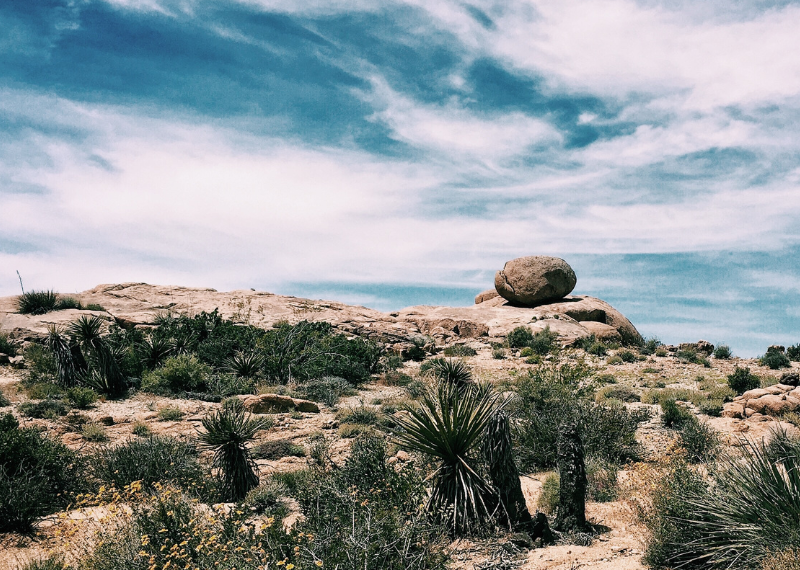
Today’s Sermon focus
The stories we need when life is hard
Like most of us, I love great storytelling. One of the hallmarks of great storytellers that I most appreciate is that they adjust how they tell the story to meet the needs of the people listening and the situation. Sometimes we tell stories to make people laugh. Other times people tell stories to get others to think or give them hope. Even if there is one basic storyline, that story can be told in a lot of different ways, depending on what the story is supposed to do for someone or who we are telling the story to.
This is true with the gospels. We have four, three of them most closely related to each other. We call these the synoptic gospels – Mark, Matthew, and Luke. And in our three-year cycle of the lectionary readings, we focus on one of the gospels primarily with the gospel of John sprinkled in there. This year is the year of Mark.
We go through these gospels in different years because they are in fact different from each other. Many of the stories of Jesus’ life and death are in all of the gospels, just told in different ways. Since we have all four, we can see how the gospel writers present Jesus’ story to connect with their audience in their time and place.
I tell you all this to bore you into sleep, but to encourage you to listen to Mark as it is told. A lot of us know how the other gospels tell the same story, so it’s sort of easy to mush all the details into one mega story about Jesus. But Mark is telling Jesus’ story that is crafted for a time, place, and people who need to hear the story in a certain way. And that certain way may be powerful for us to hear today or during certain times in our lives.
The gospel of Mark was written during a time of war, when the Jewish people rebelled against Rome and Rome crushed them in response. This gospel was written for people who were experiencing a terrifying time that was not supposed to happen if indeed Jesus was the Messiah. The Messiah was supposed to deliver the people to freedom, not allow their temple to be destroyed by Rome.
The thing that was not supposed to happen happened anyway. The gospel of Mark was written for such a time.
I’m sure we all have times in our lives that match that description. Unthinkable things that we think we could not bear still happen. Deaths, illnesses, violence, war, bankruptcy, failures…all these things are not supposed to happen. And yet here we are, still bearing these things while still thinking, “That wasn’t supposed to happen.”
The gospel of Mark was written during a time where the author of this text was likely thinking, “This wasn’t supposed to happen.” If you just sat and read Mark through, he seems to have been wrestling with urgent, painful fear and confusion.
For example, he does not pontificate on the beauty and mystery of Jesus’ birth story. He does not expand on how Jesus’ story connects to Old Testament scripture. He doesn’t have time for that. We just get into the heart of the matter right away. This text is the 3rd and 4th paragraphs of the whole gospel, after a couple short paragraphs on John the Baptist. Even then, the author is not wasting time here. The temptation story is a couple sentences, that’s it. He just blazes through the story.
The author of Mark doesn’t attempt to make sense of things or make stories tidy, like the gospel of Luke. I wondered though if this makes it’s own kind of sense. This author was writing in the midst of war, sharing the gospel in a way that might resonate with the urgent, chaotic, and difficult world around him. Maybe people of that time wouldn’t be able to connect to a slower, more careful storytelling.
Of all the gospels, this is the one where Jesus seems most human and vulnerable.
In this gospel today, we read “And just as he was coming up out of the water, he saw the heavens torn apart and the Spirit descending like a dove on him.” We don’t know what other people saw, you notice. Jesus saw this. Jesus heard God’s voice from heaven saying, “You are my Son, the Beloved; with you I am well pleased.” What if the author of Mark wants you to think that Jesus was alone in this experience. Maybe afraid. Forget the other gospels for a moment. This was the first one written, so folks had this one. What might they have thought, living in times of war?
Then he was driven into the desert by the Holy Spirit. In Matthew and Luke, Jesus was led into the desert. These are very different ways of describing this moment in time. Personally, I like the text of Matthew or Luke more, because nothing about this sounds pleasant or soothing. But when you’re in chaos, you may indeed feel driven by the Holy Spirit more than you feel led. When you’re in chaos, there is no calm in which to feel the safety of being led. If there were, that wouldn’t be chaos.
Maybe this is just the way the story should be told, particularly when the thing that wasn’t supposed to happen happens.
We may not feel led into the deserts of our lives. We may feel cast out, driven out, and maybe abandoned with wild animals. Perhaps it’s not just on the cross that Jesus knew and experienced the pain of human life. Perhaps he lived that confusion and difficulty more than we commonly think, more than is portrayed in our other gospels. Perhaps this is what Mark is telling us.
We don’t know what happened to Jesus in the desert according to Mark. We don’t know if the wild animals were pals with Jesus or if they were menacing. We don’t know if Jesus was aware of being attended to by the angels. What we do know is that he came out of the desert gathering his first disciples, teaching, and healing people. He came from that time in the desert, however frightening or disorienting it might have been, with power, love, and compassion for the lowliest amongst us. He also came out of the desert with very little patience for those he saw hurting other. It was a very powerful and fruitful time in the desert.
The story of Noah also has echoes of the desert for God. In the story of Noah, God is so upset with people that he was just going to wipe the board clean of his creation and start again. Well, except for the animals. They were good. And except for Noah and his family. They were good. By the time we get to the end of the flood, God decides that there is indeed enough good in people, in creation, in all that he has made that he won’t do that again. He makes a covenant with all of creation, all people to be born thereafter, and creates for himself a reminder to never go down that dark road again.
These stories remind me of the times that we may find ourselves feeling hopeless. When we may feel menaced, or we don’t know that we are being attended to by angels. Or the times when we may not see the point of continuing on with the creations of our lives and we want to hit the reset button.
Jesus comes out of his desert and tells us the Kingdom of God is here, even when the external circumstances are not reflecting that. He tells us, “Things are not right and yet the Kingdom of God is here. The time is fulfilled even though everything else might suggest that this is not the case.”
The truth is we may not find evidence of God’s love for us in our external circumstances all the time and yet it is here. No matter how hard life is, there is beauty and love to be found during all the days of our lives. We may have to have eyes to see and ears to hear, but it is there. There is hope and the eternal presence and promise of new life.
We too may come out of our deserts not wanting to share those stories, like Mark didn’t share the story of Jesus’ desert time. Not all of us want to go into that kind of sharing and that’s OK. It’s of course OK if you do. For all of us, though, the promise is about what is on the other side of our desert times, the new life that emerges from these hard times.
The learning, the wisdom, compassion, and love that comes from our desert days that allows us the capacity to hold open a broad covenant with the world with our hearts broadened through our wounds.
To varying degrees, many of us are feeling like our world is a world on fire. Daily reports from Gaza continue to be the worst day of the many worst days. Our political realities will make this a hard election season for all of us. Our ecological realities loom large. And our own lives continue to be challenging in different ways. Life is not easy, friends. And yet the time of fulfillment is at hand, the Kingdom of God draws near for all of us. It is here among us now. I give thanks to God for the church and all of us here who gather in person and online, hearts gathered into one to support each other through our wilderness times.
AMEN
Mark 1:9-15
9In those days Jesus came from Nazareth of Galilee and was baptized by John in the Jordan. 10And just as he was coming up out of the water, he saw the heavens torn apart and the Spirit descending like a dove on him. 11And a voice came from heaven, “You are my Son, the Beloved; with you I am well pleased.” 12And the Spirit immediately drove him out into the wilderness. 13He was in the wilderness forty days, tempted by Satan; and he was with the wild beasts; and the angels waited on him.
14Now after John was arrested, Jesus came to Galilee, proclaiming the good news of God, 15and saying, “The time is fulfilled, and the kingdom of God has come near; repent, and believe in the good news.”
Service Recording
Sermon at 19:05
Join Our Email List
We email prayer requests to the community, along with worship bulletins for online worship, updates on special events, and the monthly newsletter. In general, you can expect about 3-4 emails a week from Celebration Lutheran.

0 Comments